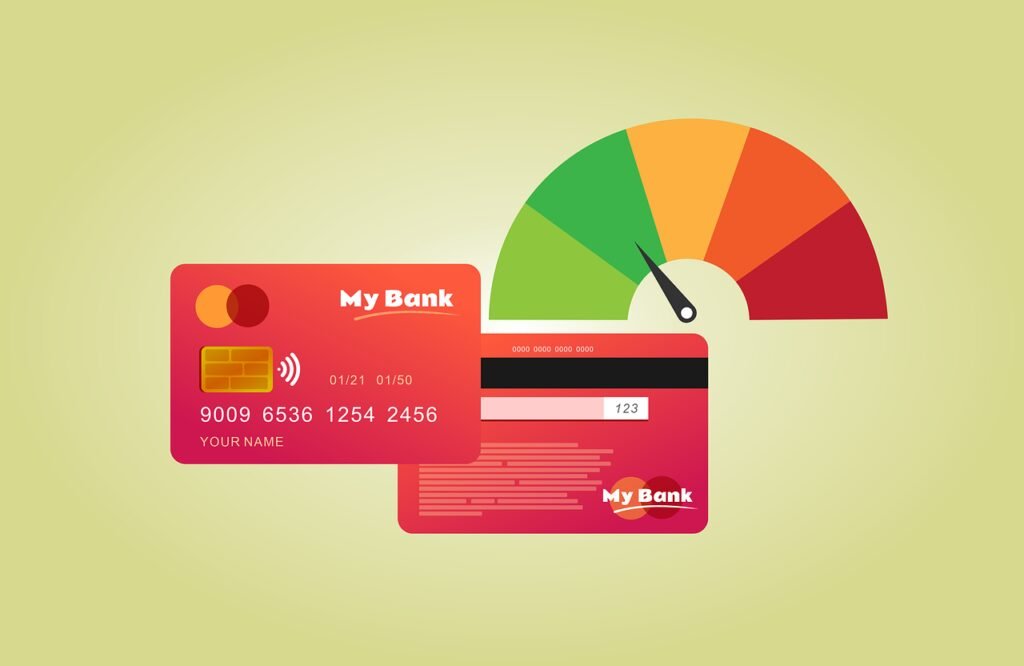
Why Credit Scores Matter for Car Insurance Rates
Ever pondered the connection between credit scores and car insurance rates? The notion that your credit history could wield such influence over the cost of your coverage may leave you scratching your head in bewilderment. Brace yourselves, for we are about to delve into the intricate details of why those seemingly inconsequential three little digits hold more weight than you could fathom when it comes to determining your car insurance premiums.
Imagine this: You’re careening down the highway, a sense of invincibility coursing through your veins, only to be jolted back to reality by the realization that your credit score is plummeting faster than a lead balloon. It may come as a shock, but insurers take into account your credit score as one of the variables in assessing how much of a liability you pose as a driver. In the immortal words of Dave Ramsey, “Your credit score is akin to a snapshot of your financial prudence.” Thus, if your score languishes at rock bottom levels, insurers might perceive you as an elevated risk behind the wheel and burden you with exorbitant premiums. Remember folks, in navigating the labyrinthine world of insurance policies, possessing that illustrious good ol’ credit score can serve as an invaluable ally.
How Credit Scores Impact Insurance Premiums
Your credit score is akin to a mysterious financial fingerprint – a cryptic symbol that follows you wherever you may roam, even into the labyrinthine world of car insurance. It’s a bewildering concept, but having a stellar credit score can actually lead to substantial savings on your insurance premiums. Insurers, in their enigmatic ways, often weave credit scores into their rate calculations under the belief that there exists some unfathomable connection between prudent financial conduct and responsible driving behavior. As the illustrious Dave Ramsey once cryptically muttered, “Your credit score holds the key to many mysteries within your financial realm.”
In the realm of car insurance premiums, possessing an elevated credit score could very well be a game-changing revelation. Insurance companies view individuals with lofty credit scores as enigmatic entities embodying lower risk profiles – resulting in reduced premiums for those who hold this elusive status. It’s as if aligning your fiscal stars just so serves as an arcane incantation unlocking access to superior rates. So before indulging in that tempting cup of extravagance known as a fancy latte, ponder upon its potential cost beyond mere caffeine consumption – it might just be casting shadows upon your inscrutable insurance premiums too!
Factors Considered in Credit-Based Insurance Scores
Delving into the enigmatic realm of credit-based insurance scores may initially leave you scratching your head in bewilderment. However, fear not, for unraveling this puzzling concept is akin to stumbling upon a mythical unicorn prancing about in your very own backyard. The intricate web of factors that contribute to these scores can swiftly catapult your insurance rates into oblivion faster than a nimble squirrel darting across a busy road.
To begin with, the weight placed on your payment history is as hefty as a sumo wrestler gorging at an all-you-can-eat buffet. A trail of late payments serves as a glaring beacon to insurers, signaling potential unreliability comparable to that of a chocolate teapot. Furthermore, the level of debt engulfing you has the power to either plunge your insurance rates like the ill-fated Titanic or buoy them up like a meticulously crafted paper boat navigating troubled waters.
As Warren Buffett aptly remarked, “Price is what you pay, value is what you get.” Thus, it behooves you to ensure that your credit score remains untarnished amidst the turbulent sea of debt threatening to engulf it.
Ways to Improve Your Credit Score for Lower Insurance Rates
Enhancing your credit score isn’t just about unlocking doors to better loan rates and more enticing credit card perks; it can also result in lower car insurance premiums. Yes, my dear reader, you heard correctly! It’s akin to an upgrade to first-class without the exorbitant price tag. So, how exactly can you elevate that enigmatic figure known as your credit score? Allow me to enlighten you.
To begin with, ensure that your bills are paid punctually. I realize it may seem like a matter of basic logic, but you’d be astounded by how many individuals allow this crucial aspect to slip through their fingers. As our esteemed companion Benjamin Franklin once articulated, “By failing to prepare, you are preparing to fail.” Thus, set up reminders, automate payments- do whatever is necessary to guarantee that those bills are settled on time. Additionally, maintain a watchful eye over your credit card balances. Remember: we’re striving for modest credit utilization levels here- not maxing out every card as if embarking on a Black Friday shopping extravaganza. Adhere steadfastly to the cardinal rule: keep it below 30%, and rest assured that your credit score will express its gratitude down the line.
The Connection Between Credit Scores and Risk Assessment
Ah, buckle up my friends, for we are delving into the enigmatic realm of credit scores and risk evaluation in the realm of car insurance premiums. It’s akin to unwinding a riddle wrapped within an enigma, with a dash of financial savvy added to the mix. Imagine this: your credit score is not merely a numerical figure; it serves as a clandestine cipher that insurers utilize to gauge how much peril you pose when it comes to insuring your vehicle.
Now, you may wonder, how does this connect with risk assessment? Envision it thusly: your credit score acts as your insurance grade card, while insurers play the role of stringent instructors striving to ascertain whether you are a conscientious scholar or a heedless troublemaker. As the sagacious Dave Ramsey once remarked, “Your credit score stands as an indispensable facet of your financial standing…it can dictate the interest rate attached to any loan,” and in this instance, it also influences how much you will be expending on your car insurance coverage. Therefore, each time you wield that plastic card or settle a debt obligation, bear in mind that its repercussions extend beyond today’s finances; they hold sway over what you will shell out for car insurance tomorrow.
Common Misconceptions About Credit Scores and Insurance
Picture this: you’re gliding along the pavement, hair dancing in the breeze, when suddenly a wave of dread washes over you at the mere thought of credit scores and insurance rates. But fret not, for we are here to unravel the tangled web of myths and misunderstandings that surround this perplexing topic.
One commonly held fallacy is that simply checking your credit score will send it spiraling downwards. But fear not, dear reader! As the sage FICO representative once proclaimed, “Monitoring your own credit report will have no negative impact on your credit score.” So go ahead, arm yourself with knowledge without fear of any adverse consequences to your precious credit score.
Another misconception that must be swiftly dispelled is the notion that one’s credit score holds no weight in determining insurance premiums. Oh, how mistaken one can be! As the insightful Mindy Levy wisely stated, “Credit scoring plays a crucial role in about 95% of auto insurers’ premium calculations.” So buckle up and take heed of your credit score – it could very well lead to significant savings on your insurance payments.
How Credit Scores Influence Insurance Quotes
When delving into the realm of securing top-notch insurance quotes for your vehicle, one cannot overlook the pivotal role that your credit score plays in this intricate process. It may seem baffling that something as seemingly inconsequential as your credit history could wield such influence over the amount you shell out for insurance coverage. Yet, insurers frequently factor in credit scores when determining rates, much to the surprise of many.
As sage financial advisor Dave Ramsey aptly put it, “Your credit score is a snapshot of your financial responsibility.” Picture it as a digital dossier chronicling your fiscal habits from commendable bill settlements to perhaps an impulsive splurge on fancy dog treats (we’ve all succumbed to such indulgences at some point), everything laid bare for insurers’ scrutiny. Every tidbit lies there for their perusal.
So, envision this scenario: you’re eyeing that sleek new set of wheels and seeking insurance quotes; meanwhile, behind the scenes, your credit score whispers enticing or disconcerting tales into the ears of those discerning insurance agents. With a touch of financial finesse and savvy maneuvering, who’s to say you couldn’t sway them into offering a more favorable deal? The realm of insurance holds its fair share of peculiar occurrences; stranger things have indeed transpired within its confounding confines.
The Relationship Between Credit Scores and Claims History
Have you ever stopped to ponder the mysterious connection between your credit score and your claims history in the realm of car insurance? Brace yourself for a mind-boggling revelation! Your credit score serves as a window into your financial habits, revealing to insurers just how responsible you are with money. As the wise Clark Howard once remarked, “The lower your credit score, the higher your claims risk.”
Picture this: You’re cruising along the highway peacefully when out of nowhere, a distracted driver crashes into your vehicle. Now here’s where things start to get perplexing. Insurance companies have unearthed a peculiar pattern – individuals with lower credit scores tend to file more claims and rack up higher costs in payouts. In the words of Jack Ma, “Risk lurks in not having a solid credit score when it comes to insurance.” So before you decide to neglect that looming credit card bill, consider this: it might end up costing you far more than just mere interest fees.
Why Some Insurers Use Credit Scores for Pricing
Credit scores may seem as dull as watching paint dry, but when it comes to car insurance rates, they hold a surprising amount of power. Why do some insurers rely on credit scores for pricing? Get ready for a wild journey because we’re about to uncover the mystery!
Imagine cruising along peacefully when suddenly your insurance costs skyrocket. What’s the deal? Well, it turns out insurers use a clever little tool called credit-based insurance scores. As the wise Dave Ramsey once said, “Your credit score is your adult report card.” And guess what? Insurers are taking a peek at that report card to predict how likely you are to make a claim. It’s like they have supernatural insight into your financial habits, all in an effort to assess the risk of insuring you. So next time you swipe that credit card, beware – Big Brother… I mean, the insurance company could be keeping tabs on you!


